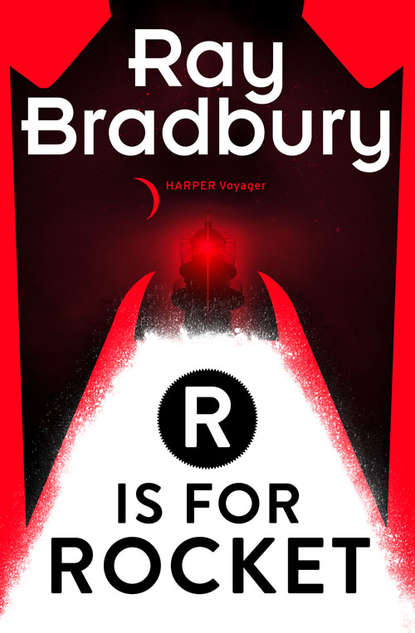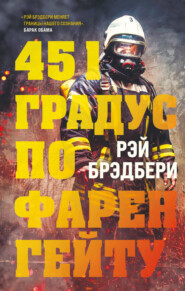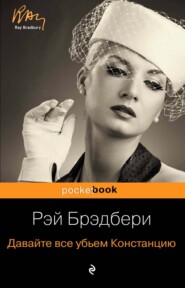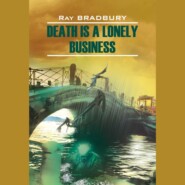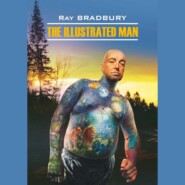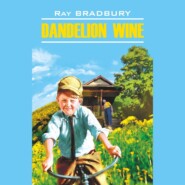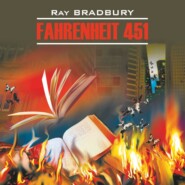По всем вопросам обращайтесь на: info@litportal.ru
(©) 2003-2024.
✖
R is for Rocket
Автор
Год написания книги
2018
Настройки чтения
Размер шрифта
Высота строк
Поля
“No one?”
“Your mother and teacher know, naturally. But no other person must know. Is that perfectly understood?”
“Yes, sir.”
Trent smiled quietly, standing there with his big hands at his sides. “You want to ask why, don’t you? Why you can’t tell your friends? I’ll explain.
“It’s a form of psychological protection. We select about ten thousand young men each year from the earth’s billions. Out of that number three thousand wind up, eight years later, as spacemen of one sort or another. The others must return to society. They’ve flunked out, but there’s no reason for everyone to know. They usually flunk out, if they’re going to flunk, in the first six months. And it’s tough to go back and face your friends and say you couldn’t make the grade at the biggest job in the world. So we make it easy to go back.
“But there’s still another reason. It’s psychological, too. Half the fun of being a kid is being able to lord it over the other guys, by being superior in some way. We take half the fun out of Astronaut selection by strictly forbidding you to tell your pals. Then, we’ll know if you wanted to go into space for frivolous reasons, or for space itself. If you’re in it for personal conceit—you’re damned. If you’re in it because you can’t help being in it and have to be in it—you’re blessed.”
He nodded to my mother. “Thank you, Mrs. Christopher.”
“Sir,” I said. “A question. I have a friend. Ralph Priory. He lives at an ortho-station—”
Trent nodded. “I can’t tell you his rating, of course, but he’s on our list. He’s your buddy? You want him along, of course. I’ll check his record. Station-bred, you say? That’s not good. But—we’ll see.”
“If you would, please, thanks.”
“Report to me at the Rocket Station Saturday afternoon at five, Mr. Christopher. Meantime: silence.”
He saluted. He walked off. He went away in the helicopter into the sky, and Mother was beside me quickly, saying, “Oh, Chris, Chris,” over and over, and we held to each other and whispered and talked and she said many things, how good this was going to be for us, but especially for me, how fine, what an honor it was, like the old old days when men fasted and took vows and joined churches and stopped up their tongues and were silent and prayed to be worthy and to live well as monks and priests of many churches in far places, and came forth and moved in the world and lived as examples and taught well. It was no different now, this was a greater priesthood, in a way, she said, she inferred, she knew, and I was to be some small part of it, I would not be hers any more, I would belong to all the worlds, I would be all the things my father wanted to be and never lived or had a chance to be.…
“Darn rights, darn rights,” I murmured. “I will, I promise I will …”
I caught my voice. “Jhene—how—how will we tell Ralph? What about him?”
“You’re going away, that’s all, Chris. Tell him that. Very simply. Tell him no more. He’ll understand.”
“But, Jhene, you—”
She smiled softly. “Yes, I’ll be lonely, Chris. But I’ll have my work and I’ll have Ralph.”
“You mean …”
“I’m taking him from the ortho-station. He’ll live here, when you’re gone. That’s what you wanted me to say, isn’t it, Chris?”
I nodded, all paralyzed and strange inside.
“That’s exactly what I wanted you to say.”
“He’ll be a good son, Chris. Almost as good as you.”
“He’ll be fine!”
We told Ralph Priory. How I was going away maybe to school in Europe for a year and how Mother wanted him to come live as her son, now, until such time as I came back. We said it quick and fast, as if it burned our tongues. And when we finished, Ralph came and shook my hand and kissed my mother on the cheek and he said:
“I’ll be proud. I’ll be very proud.”
It was funny, but Ralph didn’t even ask any more about why I was going, or where, or how long I would be away. All he would say was, “We had a lot of fun, didn’t we?” and let it go at that, as if he didn’t dare say any more.
It was Friday night, after a concert at the amphitheater in the center of our public circle, and Priory and Jhene and I came home, laughing, ready to go to bed.
I hadn’t packed anything. Priory noted this briefly, and let it go. All of my personal supplies for the next eight years would be supplied by someone else. No need for packing.
My semantics teacher called on the audio, smiling and saying a very brief, pleasant good-bye.
Then, we went to bed, and I kept thinking in the hour before I lolled off, about how this was the last night with Jhene and Ralph. The very last night.
Only a kid of fifteen—me.
And then, in the darkness, just before I went to sleep, Priory twisted softly on his cushion, turned his solemn face to me, and whispered, “Chris?” A pause. “Chris. You still awake?” It was like a faint echo.
“Yes,” I said.
“Thinking?”
A pause.
“Yes.”
He said, “You’re—You’re not waiting any more, are you, Chris?”
I knew what he meant. I couldn’t answer.
I said, “I’m awfully tired, Ralph.”
He twisted back and settled down and said, “That’s what I thought. You’re not waiting any more. Gosh, but that’s good, Chris. That’s good.”
He reached out and punched me in the arm-muscle, lightly.
Then we both went to sleep.
It was Saturday morning. The kids were yelling outside. Their voices filled the seven o’clock fog. I heard Old Man Wickard’s ventilator flip open and the zip of his para-gun, playfully touching around the kids.
“Shut up!” I heard him cry, but he didn’t sound grouchy. It was a regular Saturday game with him. And I heard the kids giggle.
Priory woke up and said, “Shall I tell them, Chris, you’re not going with them today?”
“Tell them nothing of the sort.” Jhene moved from the door. She bent out the window, her hair all light against a ribbon of fog. “Hi, gang! Ralph and Chris will be right down. Hold gravity!”
“Jhene!” I cried.
She came over to both of us. “You’re going to spend your Saturday the way you always spend it—with the gang!”
“I planned on sticking with you, Jhene.”
“What sort of holiday would that be, now?”





